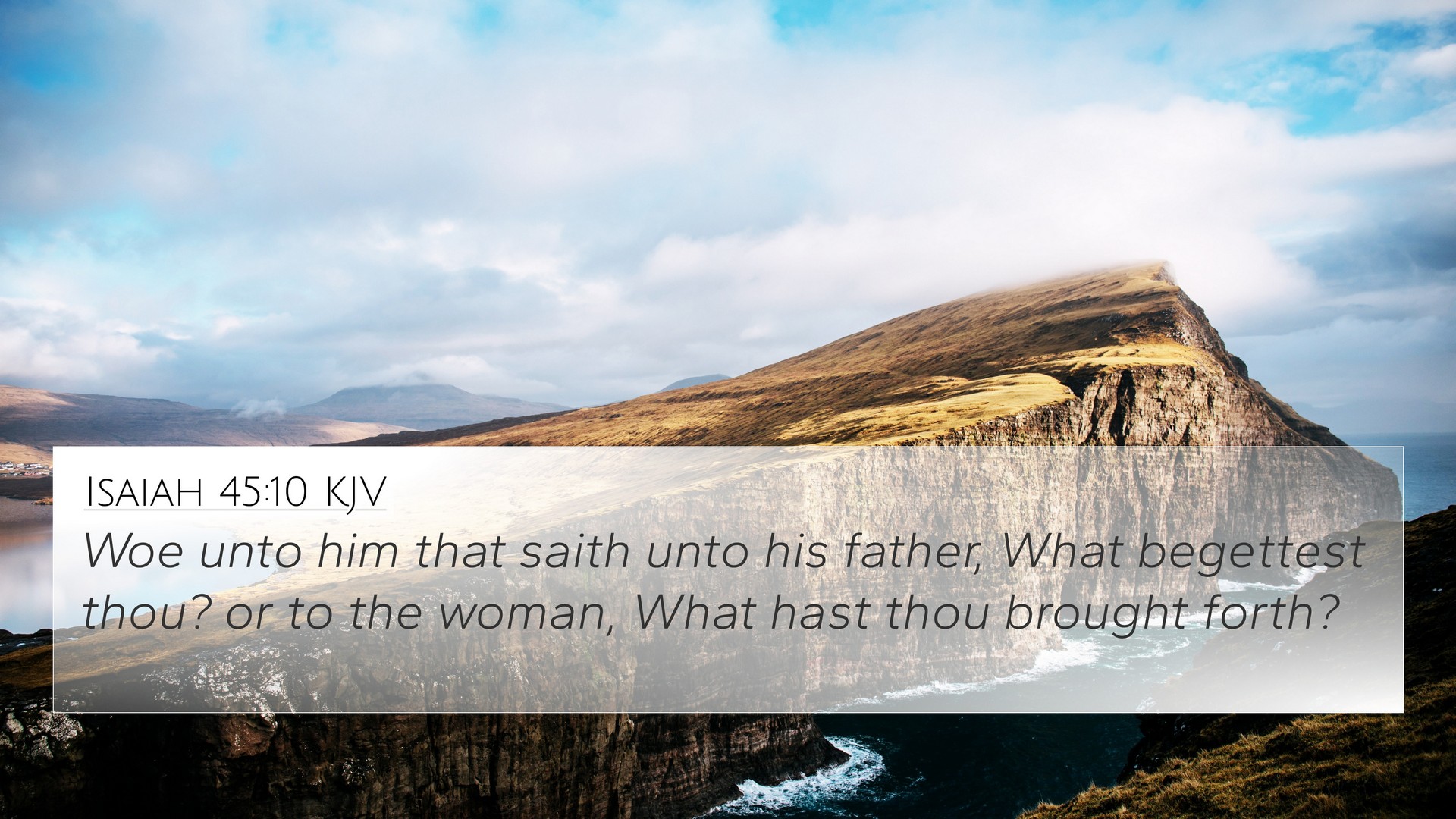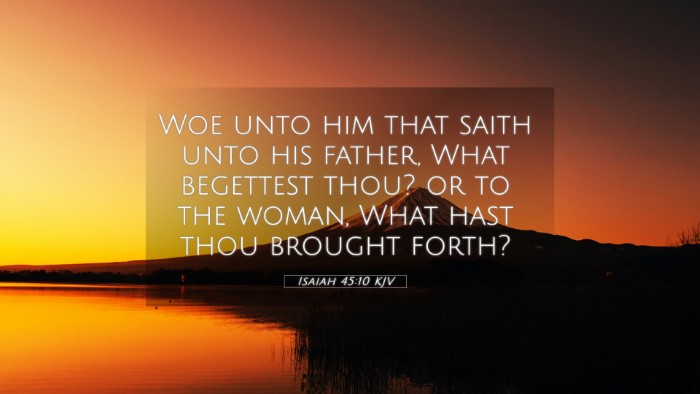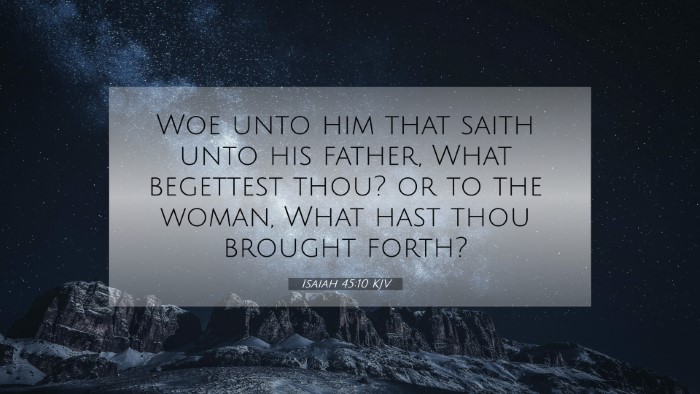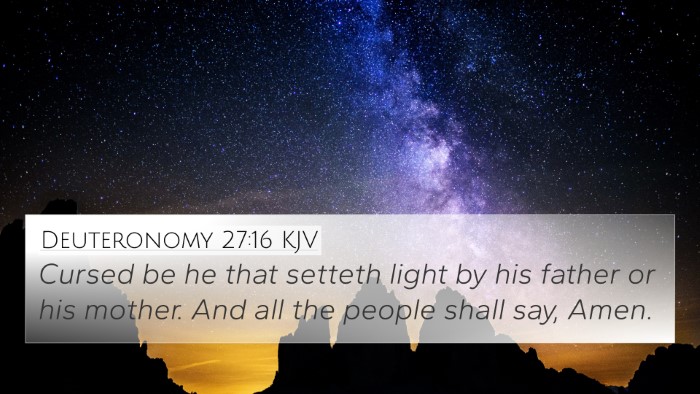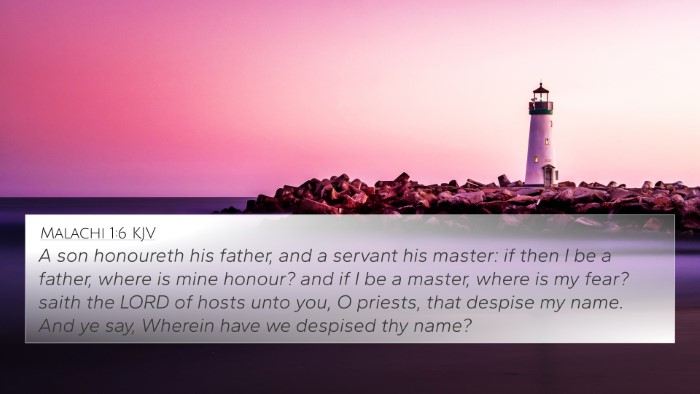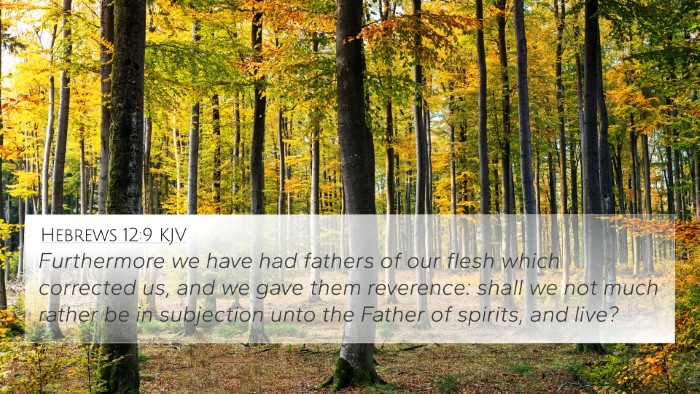Understanding Isaiah 45:10
Isaiah 45:10 states, "Woe unto him that saith unto his father, What begettest thou? or to the woman, What hast thou brought forth?" This verse contains a profound message regarding the relationship between creation and the Creator, focusing particularly on the attitudes toward familial and generational legacy.
Summary of Insights from Public Domain Commentaries
This verse has been explored extensively by various commentators, notably Matthew Henry, Albert Barnes, and Adam Clarke. Here’s a synthesis of their insights:
-
Matthew Henry's Perspective:
Henry emphasizes the absurdity of questioning one's origins or the worth of progeny. He highlights that such inquiries reflect a deep disrespect for God's creative authority, suggesting that every life is a manifestation of divine plan. He warns that questioning the purpose of creation is akin to challenging the sovereignty of God.
-
Albert Barnes' Interpretation:
Barnes brings a contextual understanding to the verse, pointing out that it addresses the futility of questioning God's works. He posits that humanity ought to recognize God’s role as the creator instead of engaging in blasphemous queries about His intentions. For him, the verse serves as a reminder to uphold reverence towards God’s creations, particularly in familial ties.
-
Adam Clarke’s Commentary:
Clarke expands on the notion of parental respect and acknowledges that the verse serves as both a warning and a reflection on the nature of inquiry. He argues that the questions posed highlight a detachment from divine intention and purpose. Clarke underscores that understanding one’s origins is crucial for valuing one's existence.
Key Themes in Isaiah 45:10
The central themes of Isaiah 45:10 can be categorized as follows:
- The Role of God as Creator: Emphasizes divine authority in creation, affirming that every being is brought forth by God.
- Respect for Family: Addresses the importance of valuing family and ancestry, warning against dismissing one’s lineage.
- The Absurdity of Questioning Creation: Highlights the folly of doubting or questioning the purpose of God’s creative acts.
Cross-References with Isaiah 45:10
Isaiah 45:10 draws connections with several other biblical texts, which enrich our understanding of the themes presented in this verse. Here are key Bible cross-references:
- Job 38:2-4 - Challenges human understanding of divine creation.
- Psalms 139:13-16 - Affirms God’s intimate knowledge of our beginnings.
- Jeremiah 1:5 - God’s foreknowledge in forming individuals emphasizes the purpose in creation.
- Romans 9:20-21 - Calls attention to the relationship between the creator and the created.
- Malachi 2:10 - Discusses the importance of honoring familial relationships established by God.
- Proverbs 17:6 - Highlights the significance of lineage and the respect due to one’s heritage.
- Genesis 1:27 - Affirms that humanity is created in God’s image, providing a direct connection to divine creatorship.
- Isaiah 64:8 - Acknowledges God's role as potter and humanity’s position as clay, which reflects creation's purpose.
Conclusion
Isaiah 45:10 serves as a powerful reminder of the respect we ought to have for our origins and God’s authority in our lives. This verse, alongside its cross-references, encourages believers to reflect on their place in God's creation, fostering a deeper understanding of their relationship with both the Creator and their families.
Exploring Biblical Connections
The content drawn from various commentaries and the analysis of cross-references provides a rich tapestry for understanding how different Bible verses interweave their messages. When engaging in comparative Bible verse analysis and cross-referencing, one can discover deeper meanings and thematic connections that enhance spiritual insight and growth. Understanding bible verse cross-references amplifies the depth of scripture study, allowing for a more comprehensive grasp of God's intention and design.
